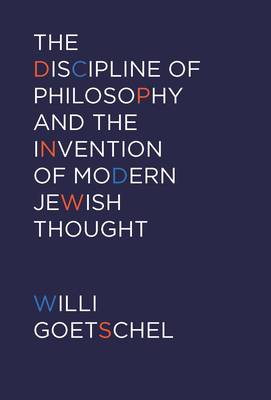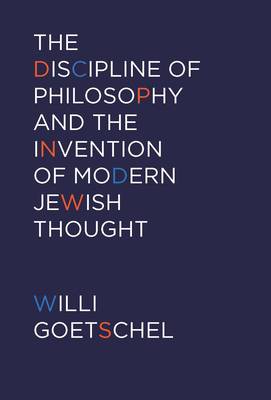
- Retrait gratuit dans votre magasin Club
- 7.000.000 titres dans notre catalogue
- Payer en toute sécurité
- Toujours un magasin près de chez vous
- Retrait gratuit dans votre magasin Club
- 7.000.000 titres dans notre catalogue
- Payer en toute sécurité
- Toujours un magasin près de chez vous
The Discipline of Philosophy and the Invention of Modern Jewish Thought
Willi Goetschel
Livre relié | Anglais
81,45 €
+ 162 points
Format
Description
Exploring the subject of Jewish philosophy as a controversial construction site of the project of modernity, this book examines the implications of the different and often conflicting notions that drive the debate on the question of what Jewish philosophy is or could be. The idea of Jewish philosophy begs the question of philosophy as such. But "Jewish philosophy" does not just reflect what "philosophy" lacks. Rather, it challenges the project of philosophy itself. Examining the thought of Spinoza, Moses Mendelssohn, Heinrich Heine, Hermann Cohen Franz Rosenzweig, Martin Buber, Margarete Susman, Hermann Levin Goldschmidt, and others, the book highlights how the most philosophic moments of their works are those in which specific concerns of their "Jewish questions" inform the rethinking of philosophy's disciplinarity in principal terms. The long overdue recognition of the modernity that informs the critical trajectories of Jewish philosophers from Spinoza and Mendelssohn to the present emancipates not just "Jewish philosophy" from an infelicitous pigeonhole these philosophers so pointedly sought to reject but, more important, emancipates philosophy from its false claims to universalism.
Spécifications
Parties prenantes
- Auteur(s) :
- Editeur:
Contenu
- Nombre de pages :
- 280
- Langue:
- Anglais
Caractéristiques
- EAN:
- 9780823244966
- Date de parution :
- 14-11-12
- Format:
- Livre relié
- Format numérique:
- Genaaid
- Dimensions :
- 155 mm x 231 mm
- Poids :
- 566 g







